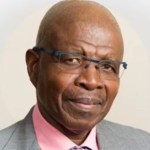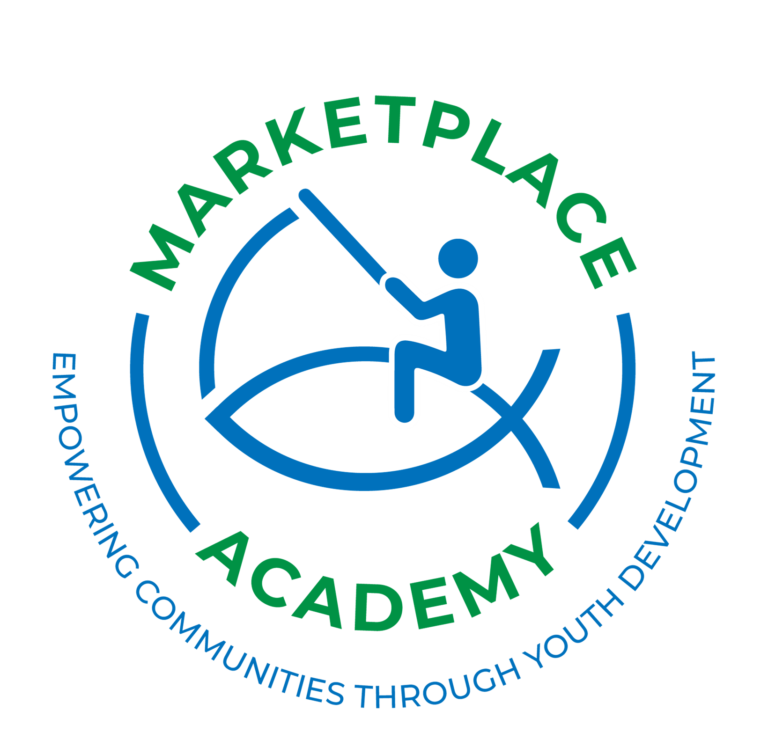Marketplace AcademyEmpowering Communities through Youth DevelopmentEmpowering CommunitiesTell me and I forget, Teach me and I remember, Involve me and I learn. (Benjamin Franklin)

Prof. Wiseman Nkuhlu
(Chairman)
Message from the Chairman
The enormous developments in technology and economic productive capacity of recent times have brought humanity to the point where it is possible to produce sufficient resources for every human being on this earth to enjoy a reasonable standard of living, in so far as this is achieved through the supply of physical necessities of life. However, the fact that there are people who are hungry, cold, homeless or torn by strife is basically NOT an economic problem but a social problem.
The greatest need now, more than ever, is to develop thoughts and concepts with which to take hold of and transform the social life of our time. This is an extract from a book: Towards social renewal, that was written in 1919.
Yet today we still find ourselves in a situation where nothing much has changed for many people.
In July 1990 the late President, Nelson Mandela said in a speech in the Parliament of the Republic of Ireland: “The struggle we are waging is also for the economic transformation of our country. Millions of our people know nothing but the corrosive ache of hunger, and many of our children die from hunger and poverty. Millions are today without jobs. Nothing awaits them except death and want’’
Read More
Now, in 2022, youth unemployment is a critical challenge for South Africa as many young people struggle to participate meaningfully in the mainstream economy. Mamphele Ramphele articulates it so well: South African youth face joblessness, poverty and inequality and the majority fall within one of the three categories being: uneducated, unemployed or unemployable.
In terms of race, Black African and Coloured youth remain more vulnerable to unemployment than other population groups.
High youth unemployment rates are not only an economic problem, but also a social and political one.
Long-term high youth unemployment generates a chain of interlinked economic and political challenges, which have huge societal effects. It is clear that where youth are unable to engage meaningfully with society, this can lead to devastating socio-economic effects which include continued poverty and inequality, inter-generational poverty, high-risk behaviour, crime, depression, extreme joblessness and a poorly performing economy.
Increased income-earning opportunities are therefore needed to give our young people hope and a foundation for a better future
Marketplace Academy was set up by Word and Life Church a few years ago and the church asked one of its members, Chantyl Mulder, who has recently retired as executive Director for Nation Building and Education at the South African Institute of Chartered Accountants (SAICA) to drive initiatives in the communities. Chantyl has spent the best part of her life transforming and changing the lives of many African and Coloured youth. At SAICA, Chantyl, led the most successful programme directed at increasing the numbers of African and coloured students qualifying as Chartered Accountants. She mobilized funding from the private sector and designed and implemented interventions that ensured the success of the students not only in historically black universities but in historically white universities as well.
So, when myself and members of this Board were approached by her to work together to bring about change in communities through the development of the youth, it was not a difficult decision for any one of us to say yes.
I am very excited about this initiative. One may ask the question why? The reason is that it is focused, and it is purpose driven and I believe that as a team we have requisite knowledge, experience and commitment. Our purpose is “To play a leadership role in transforming communities into economic hubs through the development of the requisite skills in order to get the people and, most specifically, the youth, employed so that they become innovative and active socially responsible citizens. This equates to transformation with a far greater impact.”
We need to understand the community we are going to serve as well as its leaders and stakeholders. We also need to understand the profile of the youth. Of course, this can only be fully understood through engagements with the community and church leaders.
We need to understand all the businesses in the area and to start connecting the dots – their requirements to what skills sets we have in the communities.
How do we get our children learning and how do we start SSMEs, what are the markets and how do we support each other for the benefit of the youth and ultimately the community?
Nothing great was ever achieved by anyone working alone.
We need to work together and create a blueprint which we can be replicated into other communities and surrounding businesses.
Yes, we are in the process of obtaining relevant statistical and other information from Statistics SA and the Department of Education, however we believe that as leaders and members of the community you have a better and deeper understanding of the needs, hence the engagement we have with you today and many more that will follow.
Are we going to have challenges, yes, but if we work together and understand the landscape and all take ownership we will be able to make a great difference.
We will now proceed with a brief presentation of our business plan and ask you the community to engage with us around what you think and how we should work together going forward.
The enormous developments in technology and economic productive capacity of recent times have brought humanity to the point where it is possible to produce sufficient resources for every human being on this earth to enjoy a reasonable standard of living, in so far as this is achieved through the supply of physical necessities of life. However, the fact that there are people who are hungry, cold, homeless or torn by strife is basically NOT an economic problem but a social problem.
The greatest need now, more than ever, is to develop thoughts and concepts with which to take hold of and transform the social life of our time. This is an extract from a book: Towards social renewal, that was written in 1919.
Yet today we still find ourselves in a situation where nothing much has changed for many people.
In July 1990 the late President, Nelson Mandela said in a speech in the Parliament of the Republic of Ireland: “The struggle we are waging is also for the economic transformation of our country. Millions of our people know nothing but the corrosive ache of hunger, and many of our children die from hunger and poverty. Millions are today without jobs. Nothing awaits them except death and want’’
Now, in 2022, youth unemployment is a critical challenge for South Africa as many young people struggle to participate meaningfully in the mainstream economy. Mamphele Ramphele articulates it so well: South African youth face joblessness, poverty and inequality and the majority fall within one of the three categories being: uneducated, unemployed or unemployable.
In terms of race, Black African and Coloured youth remain more vulnerable to unemployment than other population groups.
High youth unemployment rates are not only an economic problem, but also a social and political one.
Long-term high youth unemployment generates a chain of interlinked economic and political challenges, which have huge societal effects. It is clear that where youth are unable to engage meaningfully with society, this can lead to devastating socio-economic effects which include continued poverty and inequality, inter-generational poverty, high-risk behaviour, crime, depression, extreme joblessness and a poorly performing economy.
Increased income-earning opportunities are therefore needed to give our young people hope and a foundation for a better future
Marketplace Academy was set up by Word and Life Church a few years ago and the church asked one of its members, Chantyl Mulder, who has recently retired as executive Director for Nation Building and Education at the South African Institute of Chartered Accountants (SAICA) to drive initiatives in the communities. Chantyl has spent the best part of her life transforming and changing the lives of many African and Coloured youth. At SAICA, Chantyl, led the most successful programme directed at increasing the numbers of African and coloured students qualifying as Chartered Accountants. She mobilized funding from the private sector and designed and implemented interventions that ensured the success of the students not only in historically black universities but in historically white universities as well.
So, when myself and members of this Board were approached by her to work together to bring about change in communities through the development of the youth, it was not a difficult decision for any one of us to say yes.
I am very excited about this initiative. One may ask the question why? The reason is that it is focused, and it is purpose driven and I believe that as a team we have requisite knowledge, experience and commitment. Our purpose is “To play a leadership role in transforming communities into economic hubs through the development of the requisite skills in order to get the people and, most specifically, the youth, employed so that they become innovative and active socially responsible citizens. This equates to transformation with a far greater impact.”
We need to understand the community we are going to serve as well as its leaders and stakeholders. We also need to understand the profile of the youth. Of course, this can only be fully understood through engagements with the community and church leaders.
We need to understand all the businesses in the area and to start connecting the dots – their requirements to what skills sets we have in the communities.
How do we get our children learning and how do we start SSMEs, what are the markets and how do we support each other for the benefit of the youth and ultimately the community?
Nothing great was ever achieved by anyone working alone.
We need to work together and create a blueprint which we can be replicated into other communities and surrounding businesses.
Yes, we are in the process of obtaining relevant statistical and other information from Statistics SA and the Department of Education, however we believe that as leaders and members of the community you have a better and deeper understanding of the needs, hence the engagement we have with you today and many more that will follow.
Are we going to have challenges, yes, but if we work together and understand the landscape and all take ownership we will be able to make a great difference.
We will now proceed with a brief presentation of our business plan and ask you the community to engage with us around what you think and how we should work together going forward.
Intro Video
https://youtu.be/_mEswZz6SzQ
Working in communities, we empower the youth to become part of the mainstream economy
News Bulletin
Launch of Computer Lab
Click Here
Installation of a computer room.
Click Here
Installation of agriculture tunnels
Click Here
2024 MPA Bursary Brochure
Click Here
Oos Rand School of Specialization Harvest Day
Click Here
Festival at East Rand School
Click Here
Oosrand School of Specialization
Click Here
Press Release
Click Here
Maths Initiative
Click Here
Introducing Our Partners
Click Here
Mentorship Programme
Click Here
Career Awareness Day
Click Here
KPMG
Click Here
Department of Tourism and Hospitality
Click Here
Resource Center
Click Here
Auditor General
Click Here
Stationary Bags
Click Here
Motus Corporation
Click Here
Brainstorm
Click Here
Occupational Training
Click Here
Business meeting
Click Here
(CSIR) South Africa
Click Here
SPF Meeting
Click Here
Strategic Meeting
Click Here
Career Awareness
Click Here
Launch in Reigerpark
Click Here
Youth Day
Click Here

